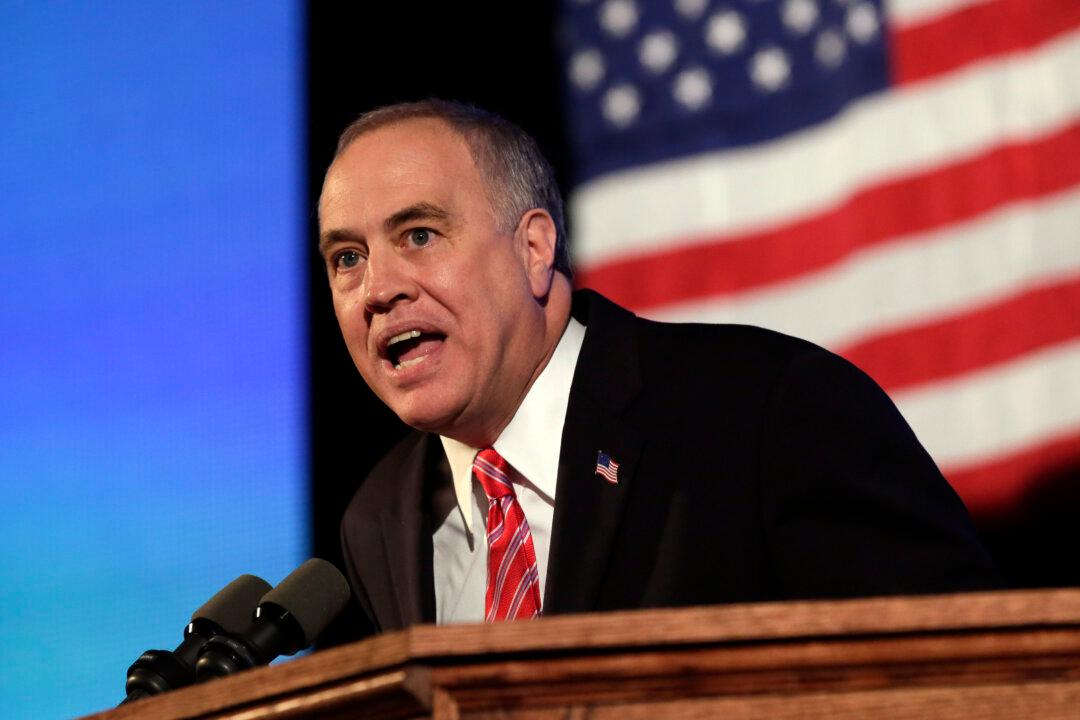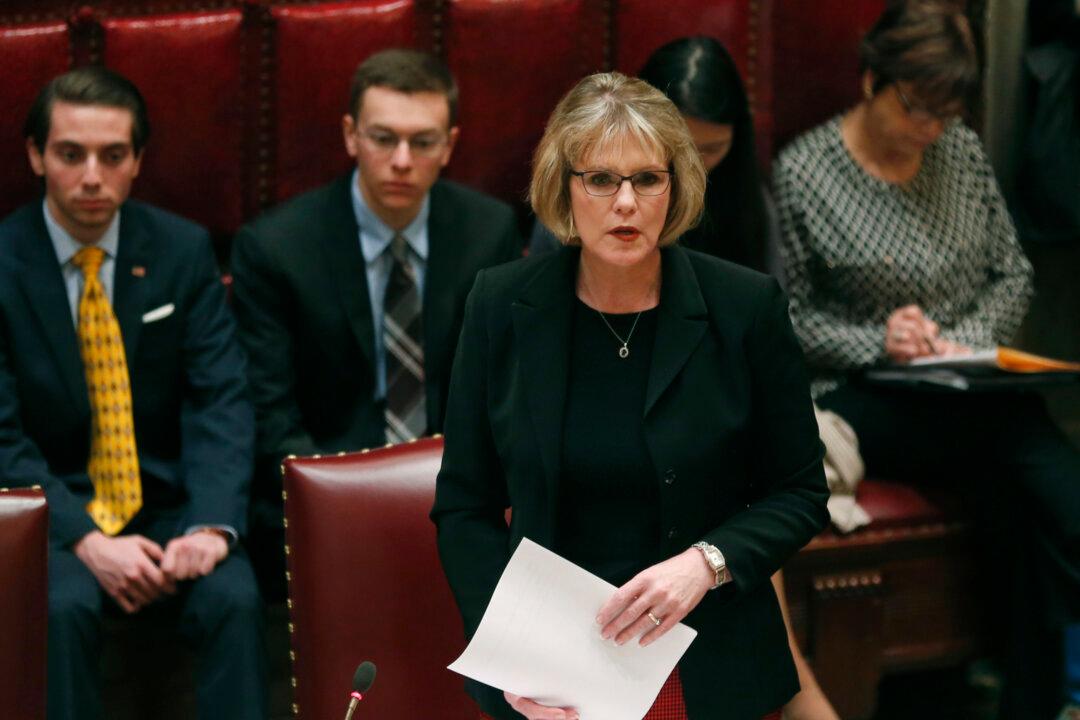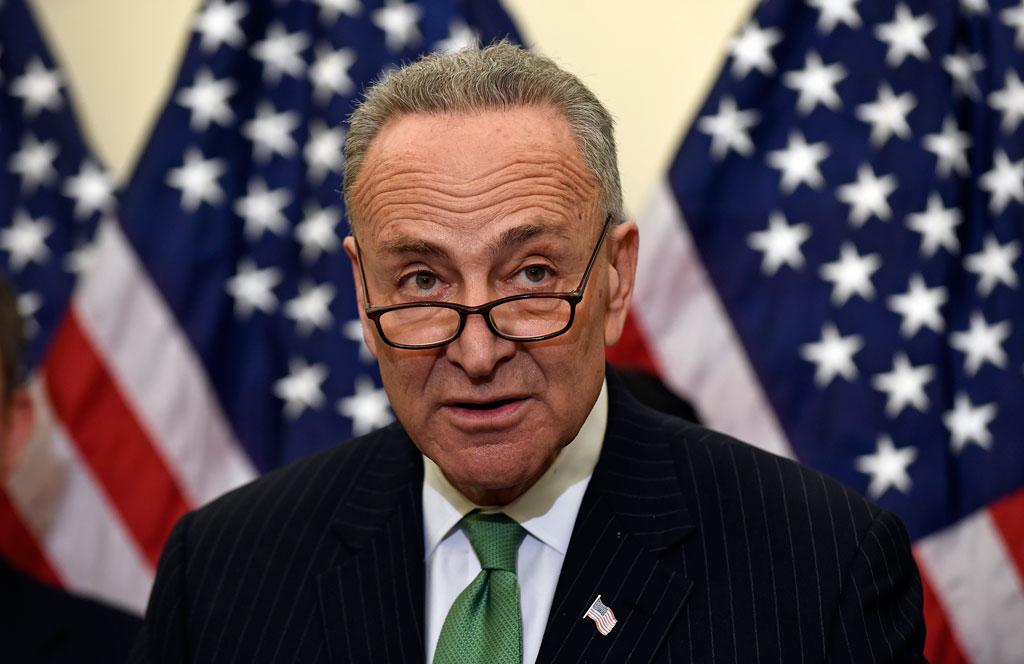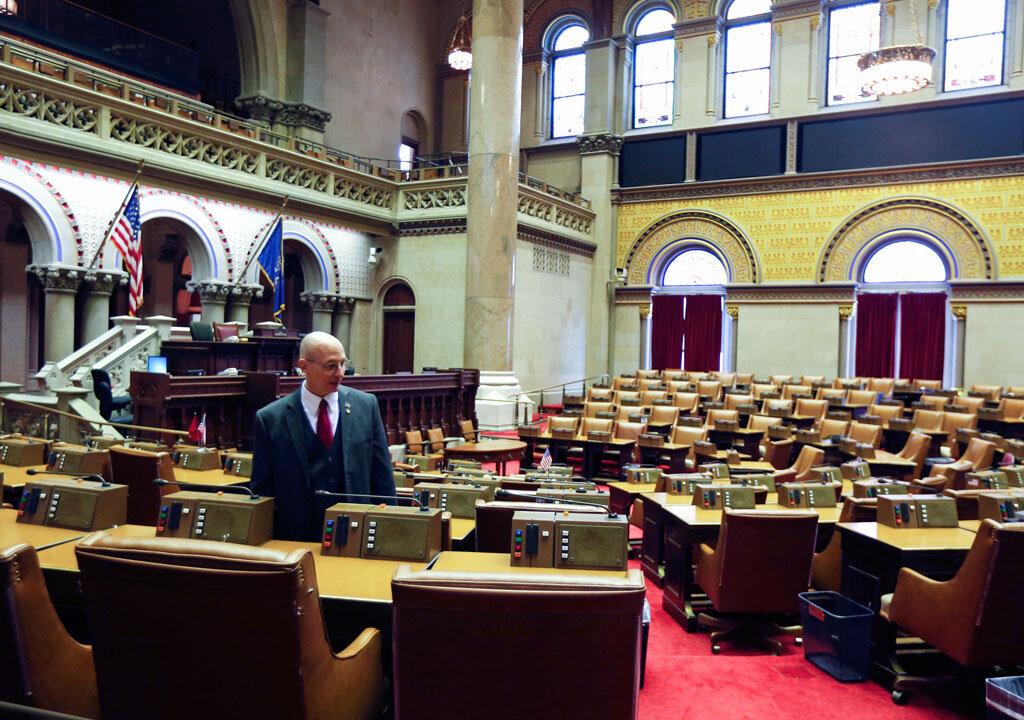ALBANY, N.Y.—After a solid win at the polls, New York Comptroller Thomas DiNapoli plans new initiatives to examine the effectiveness of economic development programs and rates paid for state contractors, while keeping auditors monitoring the fiscal health of communities and bolstering the fight against public corruption.
The Long Island Democrat said last week that being re-elected with 57 percent voter support — more than Gov. Andrew Cuomo — validates his agenda as the state’s chief financial officer and the independence of the office. The office has nearly 600 auditors who examine state and municipal finances and he will meet with staff to consider other possible missions.
“Certainly, based on the feedback we’ve gotten this election year, public corruption has to be a high priority, so continuing the partnership with the attorney general, but also strengthening partnerships we have with local DA’s and U.S. attorneys across the state,” DiNapoli told The Associated Press. “Our office plays a key role in following the money and holding people accountable who are doing wrong.”
That included recent federal and state felony charges filed against Assemblyman William Scarborough, a Queens Democrat re-elected this month while headed toward trials. Scarborough, 68, has denied illegally using his campaign funds for personal expenses and filing false state claims for travel reimbursements.
DiNapoli, 60, is a former longtime assemblyman. He declined to say whether other similar cases against New York’s 213 legislators will follow. “Broadly speaking in this area, between, the attorney general, the comptroller’s office and the U.S. attorney’s offices across the state, there’s ongoing review of these matters. I'll leave it at that.”
On fiscal stress, the comptroller’s office two years ago began identifying counties, towns, school districts and villages with significant or moderate issues with low reserve funds, operating deficits or other problems. It’s intended as an early warning system to avoid a bankruptcy like Detroit’s. DiNapoli said the stress now is more on localities than the state.
His office will also look at the changes made in state business incentive programs since Cuomo took office in 2011.
“A greater focus of our report and audit work will be on the various programs focused on economic development,” DiNapoli said. They'll assess which of the programs, which include corporate tax breaks in return for creating or keeping New York jobs, may be working or need changes.
It’s an accountability issue his Republican challenger in the election, Onondaga County Comptroller Robert Antonacci, emphasized in his campaign.
Concerning state contractors, the comptroller’s office will do a broad review of the rate-setting system and reimbursements and consider ways to make it more efficient and cost-effective, and provide greater oversight of spending, DiNapoli said. Their audits of special education programs found flaws, he said.
Those audits identified problems like salaries paid for work that wasn’t done and taxpayer money spent on personal items like contractors’ patio furniture and electronics.
As sole trustee of the state’s $181 billion pension fund for 1 million public workers, retirees and beneficiaries, DiNapoli said he'll continue pushing shareholder initiatives for reports on political spending, environmental risks, worker rights and diversity on the boards of corporations they invest in. He expects New York City Comptroller Scott Stringer to partner with him.
The investment staff is reviewing the fund’s asset allocation, including risks, with a report likely in the first quarter of next year, Di Napoli said. The fund has beefed up its risk-management staff whose job includes watching for any investment bubbles that might burst, like Internet stocks and mortgage-backed securities did in two major stock market downturns.
“That’s part of risk assessment. We haven’t detected anything like that at this point,” DiNapoli said. “It remains to be seen how long this bull market can be sustained. I don’t think it will be a bubble bursting like the dot-com bubble or God forbid the global financial crisis, but one would anticipate at some point there’s going to be a correction.”
From The Associated Press.




